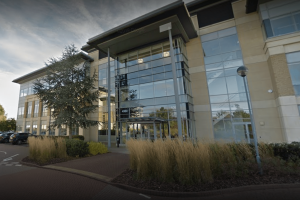Traffic congestion costing Birmingham businesses £81m a year

TRAFFIC congestion is costing Birmingham businesses approximately £81m a year in lost productivity, according to new research.
However, while the average motorist using the city’s congested roads might be surprised to hear – Birmingham is only 14th in a national table of the slowest moving areas.
Ahead of it is Swansea, Leicester, Liverpool, Sheffield, Bristol, Newcastle, Bournemouth, Hull, Brighton, Manchester and the national capitals.
However, the cost to business is only beaten by Manchester (£157.7m) and London (£237.2m).
Coventry lies 19th in the list on top 25 cities, with an annual average cost to business of £49m, while Stoke-on-Trent is £24th with a relatively modest total of £10.7m.
The figures have been compiled by sat nav manufacturer TomTom. Its index of the top 25 cities found traffic in the city increases the time each vehicle spends on the road by 120 hours a year – more than 15 working days. This could equate to a cost of £81,364,800 in time spent sitting in traffic for the 101,200 commercial vehicles operated in Birmingham.
This is part of a wider problem across the UK, with the cost to businesses for the 25 towns and cities as a whole, standing at £767,937,250.
“Traffic congestion may be seen as a fact of life for every driver but, cumulatively, it is taking a heavy toll on the UK economy and this should not be accepted as an inevitability,” said Beverley Wise, director UK & Ireland for TomTom Telematics.
“Making the most of billable time is key to profitability for any business, so organisations that rely heavily on a mobile workforce must look for ways to maximise the time employees spend actually doing jobs by minimising time spent on the road.
“Through smarter planning, routing and scheduling, companies can help their drivers to better avoid traffic, which could not only have an impact on productivity but also customer service.”
Previous research conducted by TomTom Telematics among UK van drivers found 90% admitted to arriving late for customer appointments – with 93% citing traffic as the reason.







